Reading is prioritised throughout our school and is an integral part of daily routine. Our whole-school approach includes:
- All core departments deliver guided reading and staff model the process of reading to pupils.
- A whole school guided reading mat is utilised in lessons to help structure questioning.
- Within English lessons pupils read a variety of set texts, plays and poetry to engage with reading.
- Once a week, students ‘drop everything and read’ in English.
- The “Bookbuzz” reading scheme is in place to enable pupils get to take home their own book.
- Reading for pleasure sessions are in operation
- A series of Interventions for reluctant and weak readers.
- KS2 students have a reading bag which goes home every day.
We have developed a rigorous approach to the reading curriculum that ensures that all pupils develop fluency, comprehension, confidence and enjoyment in reading. We have:
- daily reading interventions delivered through the The Link and the library
- pupils actively read in lessons and are encouraged to read aloud to improve confidence and fluency.
- staff have ‘I am Reading’ posters displayed, which foster a culture of reading and ignites exciting conversations around reading interests.
Every pupil has access to the school library:
- We have two bespoke libraries to ensure every key stage has access to read, study and attend reading interventions, with a range of diverse texts are available
- We have a full time teaching assistant who delivers all the library reading interventions including fluency interventions, reading for pleasure, guided reading and comprehension interventions
All pupils complete baseline assessments for reading:
- We use the GL Assessment which gives teachers the information they need to monitor students’ reading practice and make informed decisions to guide their future learning.
- At Year 9, 10 and 11, we use a Diagnostic Reading Analysis for pupils who need urgent interventions with comprehension, fluency and phonics.
- We use the Accelerated Reader reports to reveal how much a student has been reading, at what level of complexity, and how well they have understood what they have read.
- Vocabulary growth and literacy skills are also measured, giving teachers insight into how well students have responded to reading schemes and class instruction.
- For KS2 and KS3 we use the Jolly Phonics screening programme
- we also use IDL as a literacy improvement tool. This digital platform is used to practise phonics, spelling, punctuation, sentence and reading skills at a level appropriate to a pupil’s own ability.
- This data allows the school to implement swift interventions, which run for a full term and is collected via the library and The Link and the impact of the intervention is measured.
Weak readers receive additional support and interventions immediately with reading and literacy:
- Reading interventions are identified by the Head of English, who collaborates with the SENCo to ensure interventions are timetabled and monitored.
- Reading interventions are facilitated in The Link (SEND) and the library and impact is measured half termly.
At Key Stage 2 we use the ‘Jolly Phonics’ programme, staff have received external CPD to ensure they are fully trained. We also offer phonics based interventions at Key Stage 3 and 4 for those pupils identified.
- Staff have accessed extensive CPD for reading including; how to model reading, being a role model for reading, guided reading and pre-teaching vocabulary.




